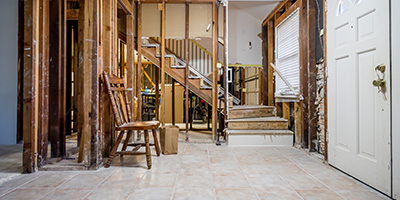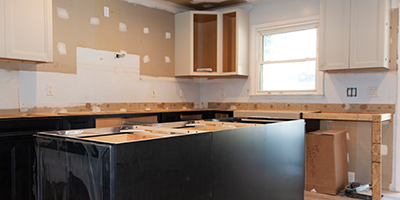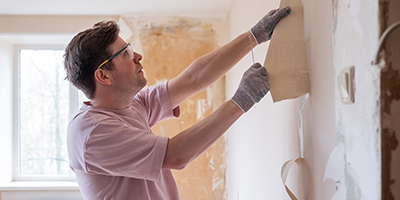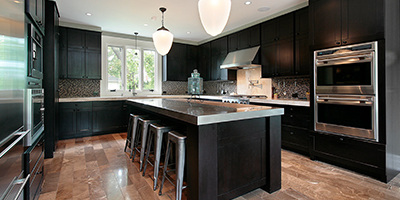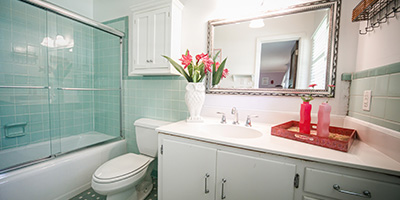Get Rid of Wood Paneling Yourself to Update Your Home
Ready to take your home out of the 1970s? Get rid of those dark wood walls to brighten up your space.
Make cleanup a breeze with a roll off dumpster:
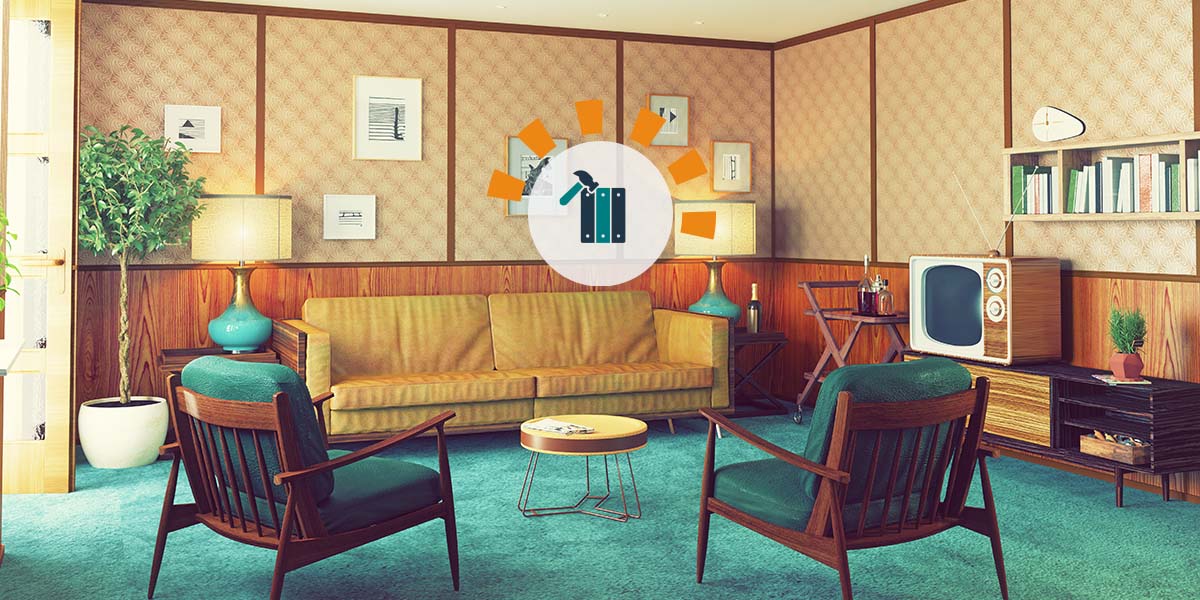
How to Remove Wood Paneling from Walls Without Causing Damage
Ready for a simple update to your house that will make it look refreshed and brand new? Removing or replacing old wood paneling can be a low-cost way to do the trick. But there are some pitfalls to be aware of that could not only impact the price but the amount of effort required. To help you ditch the wood-look, we spoke with Julian Pastin at Rebuilding Exchange and Chris Camp at The Painting Company.
FAQs
Will a dumpster help me with my wood panel removal?
Removing wood panels causes plenty of debris, from the panels themselves to fasteners and anything behind the sheets of wood. A roll off dumpster lets you get the debris out of your worksite quickly and you can toss everything at the same time.
Think you need a dumpster? Place your order online today.
What's the cost to remove wood paneling?
Typically, removing wood paneling is a low-cost project, and could be as cheap as the tools you use. However, the cost can vary based on the type of paneling you’re dealing with and whether it’s attached to drywall or nailed directly to studs.
Pastin says that the three most common types of panels are shipboard (also called shiplap), tongue-and-groove and barn siding. Each have different characteristics and are attached to the wall in different ways, which can affect your removal costs.
What's the cost to remove shipboard?
The cost for shipboard removal depends on whether it’s attached with nails or panel glue. Panel glue tends to be more expensive, as the risk of damage to the surface beneath the panels is greater.
- Very common in houses from the 1970s-80s.
- Size of panels varies, but typically 4x8 sheets.
- Tend to have a pattern embossed on the front.
Is it expensive to remove tongue-and-groove?
Tongue-and-groove tends to be the cheapest to remove.
- Comes in varying widths, typically 6-8 inches wide.
- Locks together along the length of a wall.
- Think of the knotty pine you would see in a log cabin.
How can I estimate the cost to remove barn siding?
The cost to remove barn siding depends on how it is attached. Boards attached with panel glue may cause more damage than nails, making the project more expensive.
- A thicker piece of plywood that typically has some grooves in it.
- Standard size is 4x8.
- Manufactured to be used on the outside, but can be used inside as well.
Does it matter what's behind my wood paneling?
The material behind your wood paneling and how it is attached can affect the cost of your project.
Drywall or Plaster
- Removal is easiest when the panels are attached with nails.
- If the planks are attached with paneling glue, you run the risk of damaging the drywall, leading to increased costs.
Studs
- When panels are nailed directly to the studs, the cost of removing the paneling will go up as new drywall will need to be installed afterward.
- Pastin notes that this is most likely to happen with barn siding because it is a heavier style of panel.
- Inexperienced DIYers may want to consider hiring a contractor for drywall installation.
Order a Dumpster Online
Shopping after hours? Too busy to make another call? Book the dumpster you need, when you need it. Order your dumpster online 24/7.
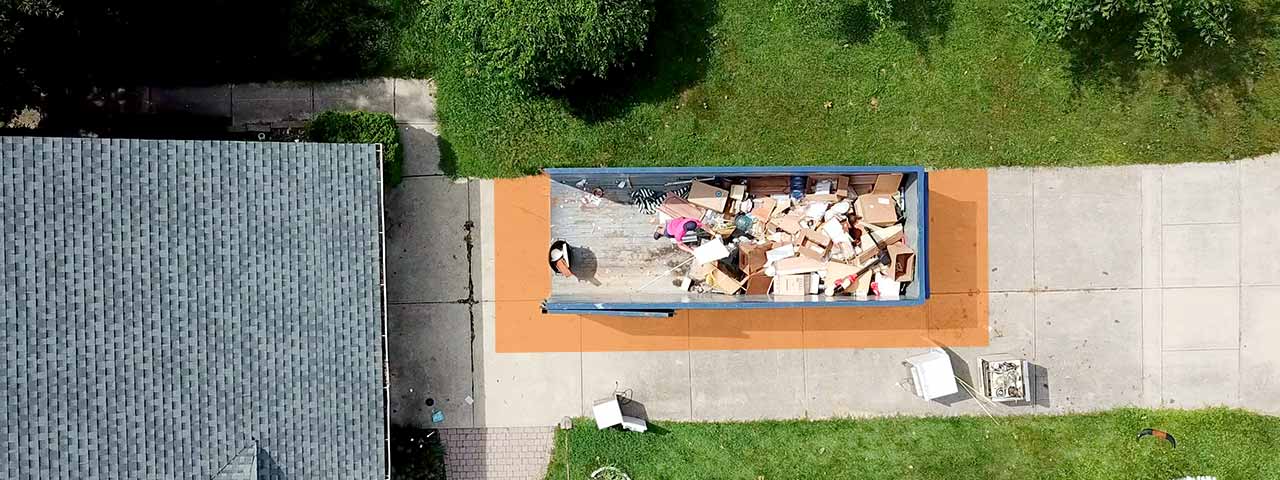
How to Remove Wood Paneling in 3 Easy Steps
Step 1: Prep Before Removing Panels
As with any project, make sure you have the right equipment beforehand. Here’s a quick list of the tools you’ll need no matter what, plus a few more recommendations depending on what is behind the wood paneling.
Get the Right Tools for the Job
Tools | /////Materials |
|---|---|
Flathead screwdriver | Drywall putty |
Pry bar | Sandpaper * |
Pliers | Drywall * |
Hammer | Mask |
Chisel | Work gloves |
Heat gun * | Drop cloths |
The best disposal option depends on the amount of wood you’re tossing. If you’re removing panels from one small bedroom, you may be able to throw it out in your weekly trash.
For larger areas like a basement or multiple rooms, renting a dumpster is often the most convenient option. Typically, a 10 yard container will do the trick for one room, but if you’re removing wood paneling from a bigger space, it’s usually best to use a 20 yard dumpster instead.
Need a dumpster to handle the mess?
Get a Price and Place Your Order Give Us a Call to Learn More
Companies like Rebuilding Exchange will also take the wood and refurbish it for various projects — from tables to cabinets and plenty of things in between. Pastin says that tongue-and-groove paneling tends to be the best for repurposing, but as long as the wood is in good shape, most places will accept the donation. “As long as it is in decent sized pieces and not covered in drywall or plaster most places will find a way to use it.”

“I would always recommend calling first. You want to make sure they are accepting that material. Sometimes we might just have too much of it and can’t accept more.”
Prep the Room You’ll Be Working In
You’re trying to make your walls look great, but don’t mess up your furniture in the process. Consider removing smaller items from the room, and covering larger ones with a blanket or tarp. Remember, there’s a good chance you’ll kick up a lot of dust.
- Before you dive in, you’ll need to remove any baseboards or molding and light switch or outlet covers around the wood panels. Store them carefully in a safe place, as you will probably want to reinstall them after the wood panels are off the walls. Insert your screwdriver between the baseboard or molding and the paneling. Gently pry until there is a bit of wiggle room.
- Remove any nails using your pliers once they are exposed.
- Once all of the nails are removed, slide the baseboard and molding away from the wall, then set them aside for later use.
- Unscrew and remove any outlet or light switch covers that need to be removed.

Start at the corner of a room to help avoid splitting your molding. Also, if you feel resistance when sliding the baseboard or molding out, check to make sure there are no nails you missed.
Step 2: Check What Is Behind the Panels
The moment of truth. Is there drywall behind your wood panels, or just studs? And if it is drywall, knowing how it's attached will determine which steps you need to follow moving forward.
- Start in a corner near the floor, and use a hammer to gently tap your pry bar into the seam where the walls meet.
- Loosen the panel by wiggling the pry bar.
- Remove any nails that come loose. (Helpful hint: if there are no nails on the wall, your panels are most likely glued to drywall).
- Pry the panel back slowly to determine if the paneling is attached to drywall or wall studs.
- With drywall, you can tell if it's attached with nails or glue fairly easily. “If it’s very difficult to get a pry bar under there or it won’t pull out at all once you do, it’s most likely glued,” Pastin says.
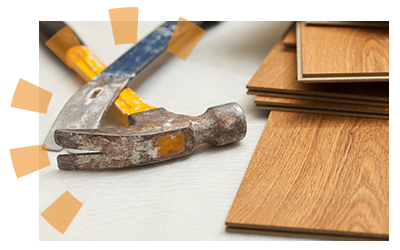
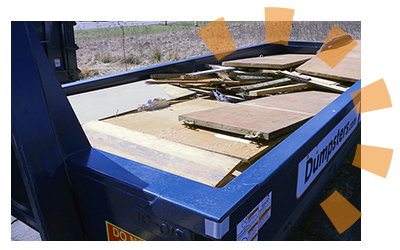
Step 3: Tear Out the Panels
Now that you know if you have drywall or wall studs to work with, you can let the fun begin by removing the panels. These general steps apply to all three types of paneling, but knowing which type you’re working with is very important.
“With tongue-and-groove, it’s easier if you pry up the tongue side first,” Pastin says. “The other types don’t matter as much what side you’re working with. No matter what, going slow is key if you want to keep the wood intact."

“If you’re not lucky, somebody either glued the panel or glued it in addition to nailing. If it’s glued to the wall, it can be very challenging to remove and is probably attached to either drywall or a plaster wall. You’re probably going to pull some of the plaster or drywall away with it, which would have to be repaired.”
How to Remove Wood Panels from Wall Studs
- Pry back the panel using your pry bar and hammer. Remove nails with pliers as they come loose.
- Remove the panel from the wall after all nails are out.
- Place panels in a pile away from the project, or throw them in your dumpster.
- Repeat until all panels have been removed.
- Patch nail holes in wall studs with drywall putty.
- Install drywall over wall studs if necessary.

While this is a quick job, be careful not to damage the wall studs by moving too quickly.
How to Remove Wood Panels from Drywall Attached with Nails
- Pry back the first panel using your pry bar and hammer.
- Remove all nails with pliers as they come loose.
- Continue until all nails in a panel are removed, then ease the panel off of the drywall using your pry bar.
- Use either your chisel or pry bar to loosen panels around the removed one by wedging the tool between the wood panel and drywall. Repeat steps 1-3.
- Toss removed panels in your garbage bin or dumpster.
- Repeat until all panels have been removed.
- Patch nail holes and any damaged drywall with drywall putty.

“If there are still nails in the wood once you remove it, just put it on a sawhorse and gently tap them out.”
Not Sure If Removing the Panels Is Right for You?
There are other options to mask or even repurpose those panels without taking them off the wall. Camp offers a few tricks to updating the wood without removing it.
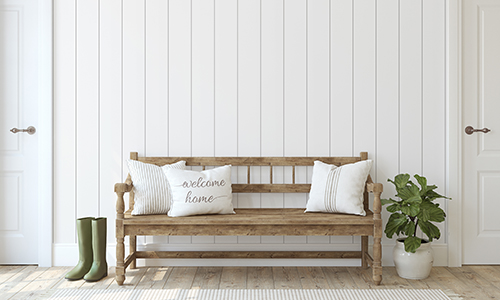
Option 1: Paint It
Sometimes a simple coat of paint can go a long way. Camp says painting wood panels is an easy task when done properly.
“Painting wood paneling is one of the easiest ways to update a room. It paints very well, but you have to make sure you take the proper time to do it right,” Camp says.
Camp offered a simple four-step guide to painting old wood panels. He recommends a minimum of two days for the project, no matter how big or small the room is, to allow enough drying time.
- Sand the panels to remove the polyurethane or clear-coat sealer.
- Apply primer to the panels.
- Caulk the joints and any nail holes.
- Paint the panels — typically with two coats.
According to Camp, proper sanding and picking the right primer are the most important steps. If not properly sanded, the paint can peel back. And without a good primer, the paint may not apply as well.

“I would recommend a primer called Stix for DIYers. It’s got great adhesion and will cover pretty well. It’s also latex-based, so it cleans up pretty well.”
Option 2: Wallpaper Over It
Pastin notes that some people may opt to simply cover up the paneling with wallpaper. He suggests a product called wallpaper liner, which you can find at most major home improvement stores.
Option 3: Camouflage It
Be creative. Pastin said that he has seen people use the panels to their advantage, such as taking a bookcase without a back and putting it against the paneling so that it appears the wood is the back of the bookshelf.
“There are plenty of things you can do,” Pastin says. “You just have to think a bit outside of the box.”
Your New Wall Canvas is Ready
With the panels off, your walls now have endless possibilities. Maybe you can paint the walls to change the vibe of the room. Maybe it’s time to display those family photos you’ve been wanting to hang up. The choices are all yours. Have fun, knowing you put in the work to make the walls your own.
Interested in other projects that will modernize your space? Check out our suggestions for other home renovation projects that add to the value of your home.
Expert Contributors

Julian Pastin
Based in the Chicago area, Julian has experience in the management of multimillion-dollar businesses. He has worked with a variety of brands including Sears and Lord and Taylor and has achieved a high level of performance in merchandising, operations, human resources, P & L management and marketing. In his role at the Rebuilding Exchange, Julian ensures a consistent flow of building materials into the stores to provide building materials for those that need them, and find creative ways to reuse waste.

Chris Camp
With over 15 years of experience, Chris is a Managing Member and Executive of many painting and construction companies throughout the South including the Atlanta Painting Company in Atlanta, Ga. The company is a full-service painting company specializing in home improvements for residential homeowners and commercial businesses.
What Do You Think?
Getting rid of wood paneling at your home? Tell us about your project on Twitter or Facebook, and use #dumpstersblog to join the conversation.


